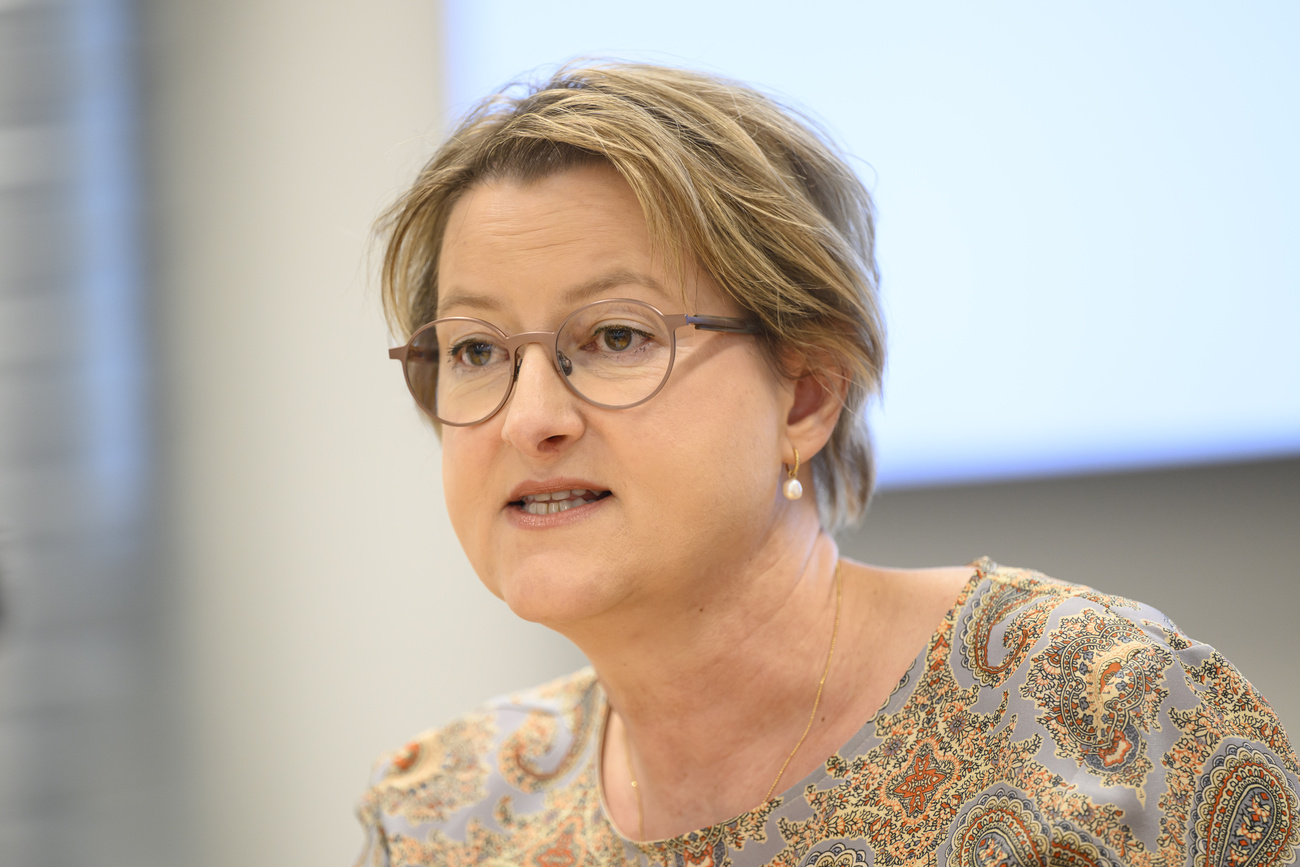
New laws to compensate victims of forced sterilisation
Switzerland is preparing laws to compensate women who were forcibly sterilised under "racial hygiene" policies that persisted until 1970.
Switzerland is only now coming to terms with its treatment of thousands of women – usually handicapped or mentally disabled – who were sterilised or forced to have abortions under the threat of being institutionalised.
A new study of Zurich city and cantonal records, as well as those from psychiatrists and gynaecologists, has found that the practice of coercive sterilisation was far more widespread than first thought.
They also continued long after German doctors ceased similar eugenics-inspired racial cleansing in the 1940s.
Poor women targeted
Zurich historian Thomas Huonker told swissinfo that the government is currently preparing a new law to compensate the victims.
“In Switzerland there is to be… a law to give [a] mainly symbolic amount to the victims and to tell the public that this was not right, that this was a crime against them.”
He said many of the victims were women from poor or deprived social backgrounds – and not only those with physical handicaps.
“Until 1970 [women] had no political rights, and poor women of marginal social situations were [particularly vulnerable as] victims of coercive sterilisations,” said Huonker.
“They said to these women, and there were male victims too, ‘let us sterilise you, or you will be [committed] to a psychiatric clinic or other asylum… for the rest of your life’.”
The Swiss policies were similar to those practiced in the United States and Scandinavian countries, and were motivated by fears that white Europeans were at risk of becoming weaker than other races.
“The mentality was the dogma of eugenics or racial hygiene,” said Huonker.
“The white man was seen as threatened by the disabled, by the handicapped and by other inherited defects, which would make the white race less strong than races with harder lives.
“Civilization, they feared, would weaken the white race and so they decided to take scientific measures,” he added.
Legal silence
The practices were carried out despite being illegal under Swiss laws, and continued with the tacit consent of politicians, lawyers and social workers.
“It was a practice without law in a kind of dark-room among a network of doctors, lawyers, politicians and social workers,” said Huonker.
“The situation was different compared with that of the US or Sweden and Norway. In Switzerland only one region had a legal basis for [sterilisation] – this was the canton of Vaud. All the other regions and cantons had no laws concerning sterilisation.”
Dr Huonker’s report has triggered a new debate about whether the victims of coercive sterilisation and abortions – many of them still alive – should be compensated.
Compensation laws
The Swiss Federal Government is currently preparing laws which will enable the victims to seek compensation.
However, Huonker said many of victims remain ignorant about the abuse they suffered at the hands of the authorities.
“It will be very difficult to find them because some of them didn’t know what happened to them and some of them do not want to know what happened.”
“It will be a difficult process for them to stand up and exercise their rights.”
Lynn Blattmann, spokeswoman for the City of Zurich, said opening the city archives was an important part of the process of reconciliation for victims.
But Blattmann, who commissioned the study, said apportioning blame would be difficult.
“The trouble is there is no legal way for them to go,” said Blattmann.
“They can’t sue anybody for what has happened to them, [as] it’s probably more than 15 or 20 years ago that it had happened and it’s already out of the possibility of going to court with that,” she said.
by Jacob Greber

In compliance with the JTI standards
More: SWI swissinfo.ch certified by the Journalism Trust Initiative






























You can find an overview of ongoing debates with our journalists here . Please join us!
If you want to start a conversation about a topic raised in this article or want to report factual errors, email us at english@swissinfo.ch.